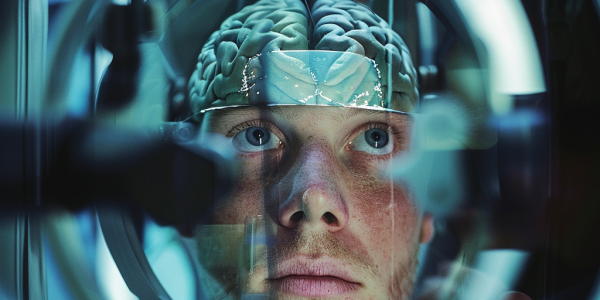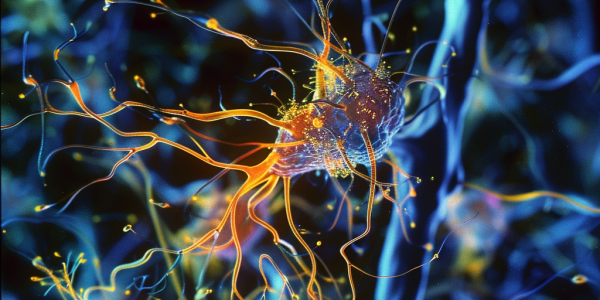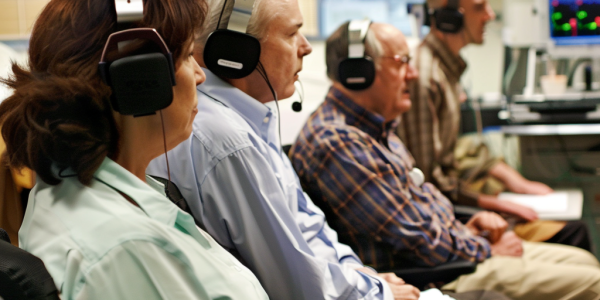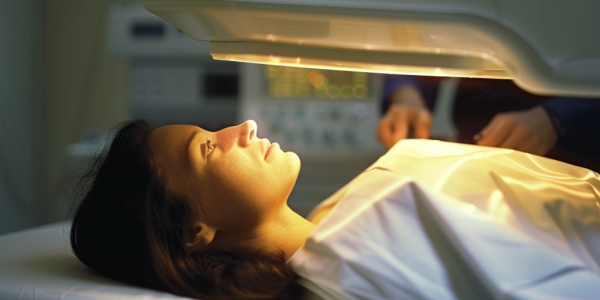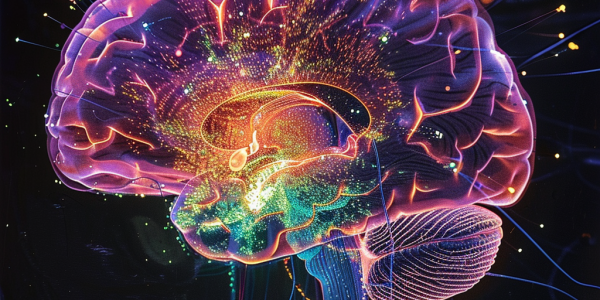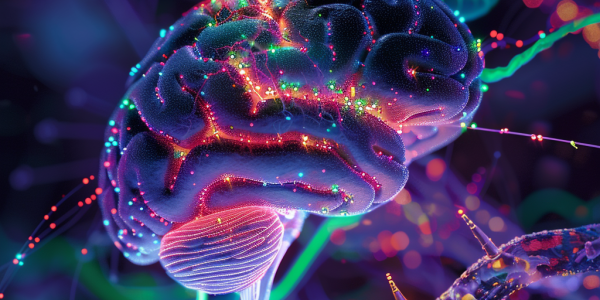Study Shows Internet Addiction Alters Brain Chemistry in Young People
New research published in PLOS Mental Health reveals that internet addiction can alter brain chemistry in young individuals, leading to further addictive behaviors. The study, utilizing fMRI, found changes in neural networks, increased activity during rest periods, and decreased functional connectivity in areas responsible for active thinking. These alterations were linked to shifts in mental health, cognitive development, intellectual abilities, and physical coordination. Recognizing and addressing internet addiction in adolescents is crucial to prevent long-term negative consequences on their well-being and development.
Transparent Skull Implant Enables Revolutionary Brain Imaging Technology
Researchers at the Keck School of Medicine of USC and Caltech have developed a new brain imaging technique using a transparent ‘window’ in a patient’s skull. This innovative approach, demonstrated in a proof-of-concept study, utilizes functional ultrasound imaging to record brain activity. Led by Dr. Charles Liu, the study shows promising implications for patient monitoring and a deeper understanding of brain function, particularly in individuals with neurological disabilities. This groundbreaking research offers new possibilities for diagnosis and treatment in patients with serious head injuries.
Discovery of Blood Flow Waves in Awake Mice Brains Challenges Existing Beliefs
Groundbreaking research reveals a network of blood vessels in awake mice that rhythmically expand and contract, causing waves to sweep across the brain’s surface. These waves play a crucial role in mixing fluid surrounding brain cells, aiding in waste removal and combating neurological disorders like Alzheimer’s disease. The study challenges existing beliefs about blood flow in the brain and offers valuable insights for potential therapeutic targets in neurodegenerative diseases.
Discovery of Brain Activity Behind Mind Wandering
Researchers from Osaka University have discovered a specific pattern of brain activity associated with memory and sleep triggered during mind wandering. The study, published in Nature Communications, explores the concept of ‘self-generated’ brain states and their connection to vivid, imaginative thoughts. By analyzing data from epilepsy patients, the researchers found that sharp-wave ripples in the hippocampus were linked to instances of mind wandering, shedding light on the brain mechanisms behind this unique aspect of human cognition.
Study Reveals Neural Mechanisms of Stuttering in Adults
A recent study published in Neuropsychologia reveals lower accuracy in repeating nonword syllable sequences in adults who stutter, suggesting unique neural patterns. Understanding these mechanisms is crucial for effective therapeutic interventions for this speech fluency disorder impacting millions worldwide.
Ultrasound Waves: Revolutionizing Brain Disorder Treatment
Discover how ultrasound waves are revolutionizing the treatment of brain disorders by targeting specific regions with precision, offering a non-invasive and effective alternative to traditional methods. Learn how transcranial ultrasound stimulation (TUS) is being used to treat conditions like depression, anxiety, and addiction, providing hope for those struggling with psychiatric disorders.
Researchers Create World’s First Human Mini-Brain with Fully Functional Blood-Brain Barrier
Discover how researchers at Cincinnati Children’s Hospital Medical Center have created the world’s first human mini-brain with a fully functional blood-brain barrier (BBB), revolutionizing the study and treatment of brain disorders. This breakthrough enables a deeper understanding of neurological conditions and paves the way for innovative therapeutic strategies.
The Impact of Arousal on Visual Perception: Insights from Recent Study
Discover how arousal levels influence visual perception according to a recent study by neuroscientist Laura Busse from LMU. The research sheds light on the complex processes that govern our visual experiences, challenging the traditional view of visual stimuli interpretation. Learn about the distinct firing modes in the visual thalamus and the correlation between arousal levels and neural activity, offering valuable insights into the dynamic interplay between brain activity and sensory experiences.
Remarkable Improvement in Brain Health of Alzheimer’s Patient
Discover the astonishing improvement in brain health of a patient battling early signs of Alzheimer’s disease. Learn how lifestyle changes, not medication, played a key role in transforming the brain biomarkers of Simon Nicholls. Find out how his proactive approach to health management offers hope for those with genetic predispositions to Alzheimer’s.
Novel Gene Therapy Vehicle Successfully Crosses Blood-Brain Barrier in Mice
Researchers at the Broad Institute have developed a groundbreaking gene therapy delivery vehicle that effectively crosses the blood-brain barrier in mice, offering new possibilities for treating a range of brain diseases. This innovative approach utilizes a human protein to transport therapeutic genes into the brain, promising safer and more efficient treatments for neurodevelopmental and neurodegenerative disorders.


